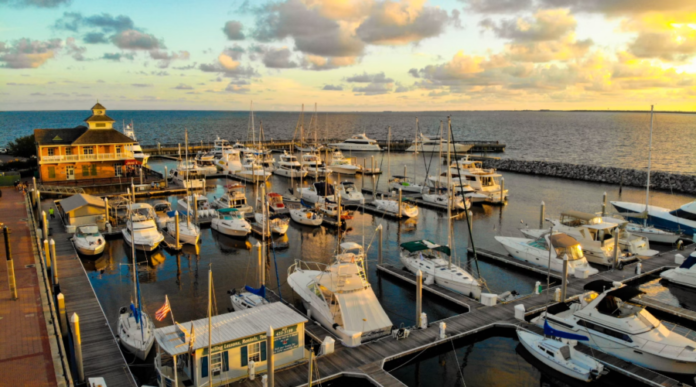The marina industry in the US is a $6 billion market, growing steadily. With a steady rise in marina owners, there’s a dire need for articles on how to maintain a marina dock or ensure marina dock safety.
The marina dock is a critical part of your marina but is also vulnerable to dangerous situations. If you run a marina, you understand the importance of keeping your docks safe. From strong winds and storms to pets that like to swim in the water, many things can cause damage to your dock. In this blog post, we’ll provide some tips on how you can ensure the safety of your marina docks.
Marina Dock Safety Is Different From Regular Boat Safety
Marina dock safety is different from regular boat safety. While you’re always responsible for keeping your boat safe, keeping an eye on the marina and its facilities is also important. If you don’t, you could be held liable for any damage done to the docks or other boats in the marina that results from a lack of care or negligence on your part.
Marina dock safety is about more than just your vessel; it includes all of the infrastructures around it and other vessels docked nearby. Everyone involved must have a plan in place so that when something goes wrong (as things inevitably do), everyone knows what they should do while they wait for help to arrive or until repairs can be made.
Here are some tips to keep in mind:
- Ensure there is enough space between boats, so nobody runs into each other while maneuvering into position or out of their slip when leaving/arriving at home port.
- Have someone stationed onshore when moving through an anchorage/dock area because visibility isn’t as good out there as being alongside another craft. Don’t forget about wind direction since currents flow strongest against prevailing winds.
- Consider having a marina safety coverage, such as Blue Haven Marina, for when things go wrong. It provides coverage for an operator or owner of a marina and everything in it.
Be Sure to Have Proper Safety Equipment
A properly maintained emergency kit is crucial for any boat. As a marina owner, you should ensure that your tenants have a proper safety kit on board their vessels. Having the following items on hand can make all the difference in an emergency:
- Personal Flotation Device (PFD) for each person on board
- Fire extinguisher
- First aid kit
- Whistle or horn to signal for help
In addition to having these items available in case of an accident at sea, it’s also important to know how to use them properly. Ensure that each tenant has been trained in how each piece of equipment works and its limitations before they set sail.
Be Prepared for Storms and Flooding
The first thing to do is develop a plan for what to do if a storm is coming. Where will you go? Who is your partner in crime, and how can they help you? If the water rises, do you have a place where your boat will be safe? Be sure to research local laws regarding where boats should be stored during high-risk weather conditions, so your vessel isn’t accidentally swept out into open waters.
Keep an eye on the weather forecast as well. If there’s heavy rain near where you live or work (or plan on being), make sure that all of your belongings are at least partially waterproofed before heading out. These aren’t just good tips for marinas; these are good tips for life.
Know How to Use All of Your Boat’s Systems
Knowing how to use all of your boat’s systems is important. You never know when you’ll need them, so make sure you understand how they work and their limitations. If a problem arises, it will be up to you, as captain, to take care of things.
Knowing how to use an engine can save your life. Not only do engines power boats, but they can also help save lives by providing emergency power for life support equipment when no other source is available (for example: for those who become lost at sea). Learn about safety features like bilge pumps and fire extinguishers because these tools may save your life one day.
Learn First Aid
Next, learn first aid. While you’re at it, consider learning CPR as well. You must know how to help someone who has fallen overboard or been injured because of a slip-and-fall accident on the dock. Knowing first aid could save their life if a crew member falls into the water and can’t swim.
First aid training isn’t hard to come by these days. Many community centers offer programming classes in their free time, along with hospitals and fire stations. You can also find online courses at Red Cross.
Make Friends With Other Marina Residents
The more you and the people around you know each other, the more likely someone will notice if something is amiss on the dock. The best way to prevent a mishap is by catching it early, and that’s much easier to do when there are eyes on the docks at all times. Plus, keeping an eye out for each other is just plain fun.
It’s important to keep in mind that safety isn’t only about preventing accidents from happening. It’s also about making sure everyone feels secure in their surroundings. If you see something suspicious, report it immediately so those with authority can take action as necessary.
Bottomline
As a marina resident, you must be aware of your responsibilities. It includes knowing the rules and regulations of the marina, as well as emergency procedures in case of an accident or fire. You should also be familiar with the other people living on site and their contact information in case you need to notify them if something happens at home.
We hope this article has given you some insight into the different responsibilities of marina residents. As a marina resident, keeping your boat safe and prepared for storms and flooding is important. When it comes down to it, though, we’re all just doing our best by having fun on the water.



































































